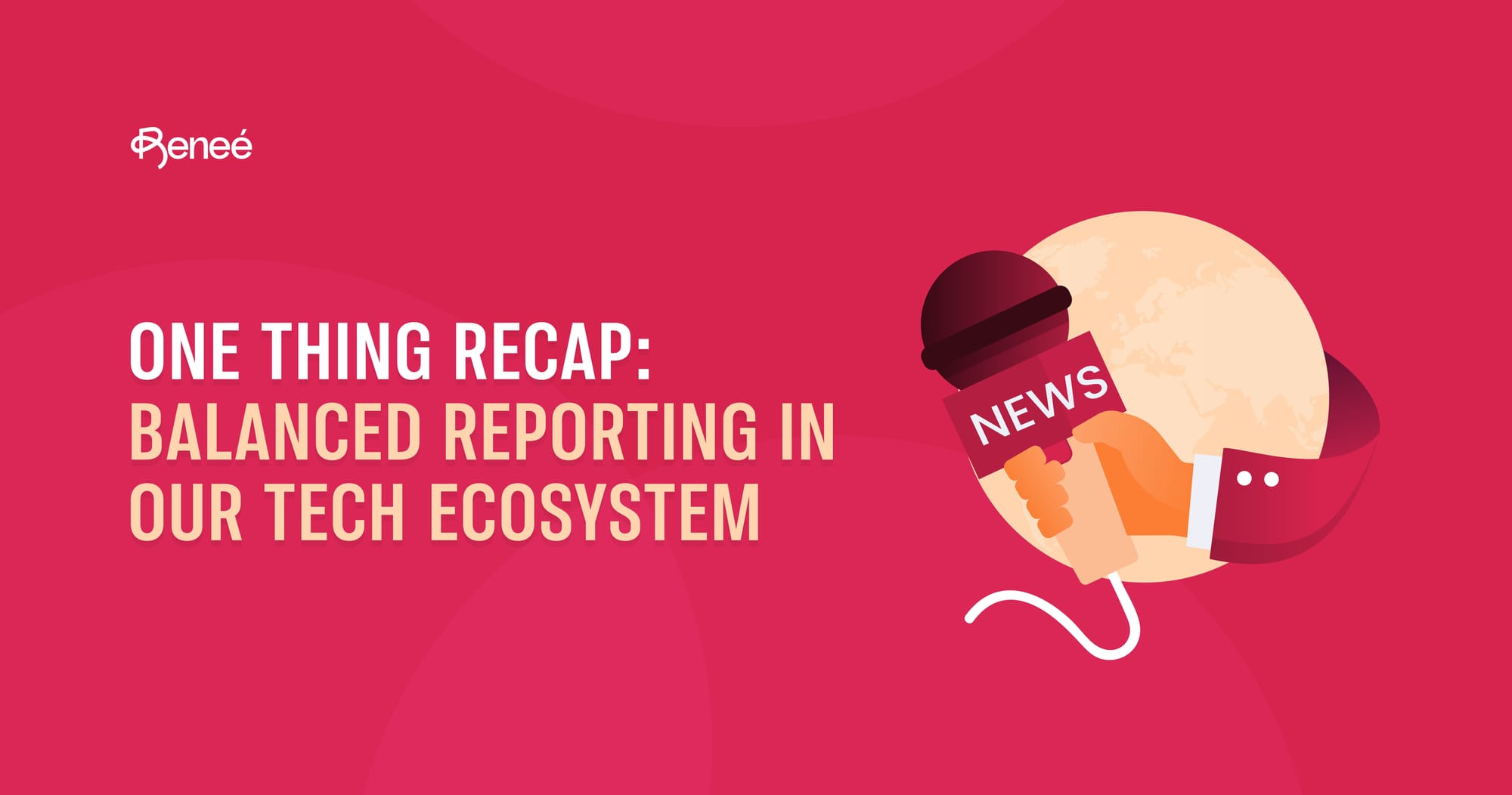One Thing Recap: Balanced Reporting in Our Tech Ecosystem
There’s no single right way to tell the story of African tech. However, we must all play a role in telling it better.

Stories shape people, companies, and industries. Chimamanda Adichie famously warned us of the dangers of a single story. This is because multiple stories and events occur simultaneously at every point in time.
So, which ones do we tell? How do we remain honest about our challenges while still shaping how we are perceived? What does Balanced Reporting in our tech ecosystem look like?
These questions were answered in the inaugural episode of One Thing, an X (Twitter) Spaces series by Reneé, focused on the intersection of tech and media. Our panel featured Toluwanimi Onakoya, Communications Manager at Lingawa; Daniel Adeyemi, managing editor at Condia; Henry Nzekwe, journalist at Weetracker; and Olugbeminiyi (Bemi) Idowu, founder & MD of Talking Drum Communications.
This diverse mix of voices from media, PR, and startup communications provided a well-rounded discussion on balanced reporting, exploring the tensions between coverage and perception, and the responsibilities of journalists and companies in shaping public discourse.
The Stories We Tell, and the Ones We Don't
“What matters is how technology affects or improves lives. That is where the story is.” - Henry Nzekwe.
African tech is often defined by its loudest headlines—funding rounds, high-growth startups, and the occasional scandal. But between these moments are the stories that rarely get told: the pivots, failures, regulatory battles, and everyday struggles of building in an emerging market.
Yet, founders and companies often hesitate to share these realities, wary of how they might be perceived. This reluctance contributes to an incomplete picture that doesn’t always serve the ecosystem in the long run. “We need more lessons from failure and recovery, not just overnight successes,” Toluwanimi pointed out.
The Role of the Media in Shaping Perception
On the other side, journalists navigate their own challenges. As Daniel explained, tight deadlines, limited access to verifiable data, and the pressure to write stories that drive engagement often shape coverage in ways that don’t always allow for depth.
But, despite these (often misunderstood) nuances of media relations, the conversation acknowledged that the media can do better. Context matters, and without it, stories about failure can come off as harsh.
Speaking to his colleagues in the media, Henry emphasised that “Balanced reporting means giving readers the full picture, and you do not get to decide what the picture is.”
A Call for More Collaborative Storytelling
So, what is balanced reporting after all?
If the conversation made anything clear, it’s that balanced reporting is a shared responsibility. Founders and companies need to understand how media works, invest in relationships with journalists, and be more intentional about the narratives they contribute to.
As Daniel advised, “The first step is to understand what news is and the channels you have. Explore all the channels and do not discount putting out your own stories and insights.”
At the same time, Bemi stressed the need to “elevate the priority of PR and comms” in startups. More than just a reactive tool, proper PR and communications ensure that storytelling is an ongoing effort rather than an afterthought. When done right, this doesn’t just serve individual companies—it strengthens the entire ecosystem by making room for a more nuanced, honest, and ultimately useful discourse.
Where Do We Go From Here?
To wrap up, we asked each guest to tell us one thing they wanted everyone to take from the conversation.
Daniel Adeyemi: We should respect how the media works.
Toluwanimi Onakoya: CEOs and public-facing officials should undergo media training.
Henry Nzekwe: Journalists must provide sufficient context to foster better understanding.
Bemi Idowu: There’s no substitute for competent PR professionals who can help shape narratives.
But what about us? Here’s ONE THING we took away from the conversation: There’s no single right way to tell the story of African tech. However, we must all play a role in telling it better. We must prioritise transparency, and be willing to engage beyond the surface.
As one of our guests said, “African tech has come of age, and it can withstand a few blows.” A more robust press, willing to tell deeper stories, is necessary for a maturing ecosystem.
If you missed the space, we've got you - a recording is available here. We’d like to know your thoughts - join the conversation and let us know!

